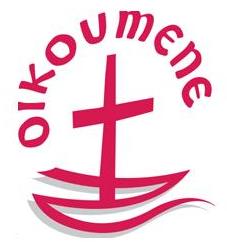
GENEVA, Switzerland, Nov. 30, 2015 /
Christian Newswire/ -- As we mark World AIDS Day 2015, the World Council of Churches-Ecumenical Advocacy Alliance (WCC-EAA) welcomes a license agreement between the Medicines Patent Pool (MPP) and Bristol Myers Squibb (BMS) for daclatasvir, an important direct acting antiviral that is proven to help cure multiple genotypes of the hepatitis C virus (HCV).
Approximately 4-5 million people are co-infected with HIV and HCV, representing about 12% of people living with HIV (PLHIV). Such PLHIV are 11 times more likely to be infected with HCV than people who are HIV-negative. Co-infected people also suffer the highest morbidity and mortality from rapidly progressing liver scarring. Infectious hepatitis threatens the hard-won successes in HIV care as liver disease-related deaths now surpass AIDS-related deaths in many parts of the world. Each year up to 700,000 people globally die from HCV-related causes.
"This is really good news for people with the HCV virus, particularly including people living with an HIV/HCV co-infection. After encouraging BMS in 2012 to license atazanavir (antiretroviral) to the MPP, we also congratulate BMS in taking a leadership role in being the first company to license a medicine to the MPP for HCV," states David Deakin, executive director of Chasing Zero and chair of the Access to Treatment working group for WCC-EAA.
The reason why this license is good news is that it will enable lower-cost generic versions of daclatasvir, including combinations, to be produced, facilitating greater access to treatment. The royalty-free license covers the sale in 112 low- and middle-income countries (LMICs), 76 of which are World Bank classified middle-income nations. Nearly two-thirds of all people living with hepatitis C in the LMICs reside in the territory covered by this agreement.
Noting that there is still a long way to go to enable full treatment access, Astrid Berner-Rodoreda, policy advisor on HIV and AIDS for Brot für die Welt and member of the WCC-EAA working group says "This license is a good start, and we welcome the initiative by BMS and hope that other companies follow suit in negotiating licenses with the MPP for their HCV medicines. Like the first antiretroviral licenses, however, the geographic scope needs to be improved, as the license does not cover over a third of people with HCV infection."
The new license comes following the recent announcement by the Unitaid Board that the MPP's mandate would be extended to include HCV, after the MPP had extensively consulted with civil society and other groups.
"This is an important step in the treatment of millions of people with HIV and HCV co-infections, who are often some of the most vulnerable in society. We hope other companies follow BMS' lead and add needed patents to the Pool," states Msgr. Robert Vitillo, special advisor on HIV and AIDS to Caritas Internationalis, and member of the Access to Treatment working group.
Background information
Daclatasvir, a once-daily, all oral treatment, inhibits HCV by targeting a key protein, NS5A, involved in the replication of the virus. Daclatasvir, in combination with sofosbuvir, produces high cure rates after 12 weeks of treatment, even among HIV/HCV co-infected patients. Recent Phase III studies demonstrated that the daclatasvir regimen could cure up to 100% of HCV patients depending on genotype and stage of liver disease.
The daclatasvir agreement allows for manufacturers to be based anywhere in the world; generic daclatasvir can be made in any country as long as it is for sale in the 112 countries covered by the agreement. Importantly, the license allows generic manufacturers to develop fixed-dose combinations with other direct-acting antivirals to create powerful pan-genotypic regimens that offer the potential to treat all of the six major genotypes of HCV. Pan-genotypic regimens are crucial in resource-limited countries where access to genotype testing is limited. Bristol-Myers Squibb will provide a technology transfer package and information needed for the manufacture and registration of the product.
The Ecumenical Advocacy Alliance, an ecumenical initiative of the World Council of Churches, is a global network of churches and related organizations committed to campaigning together on common concerns for justice and human dignity. Current campaign issues are HIV and AIDS, food security and sustainable agriculture.

